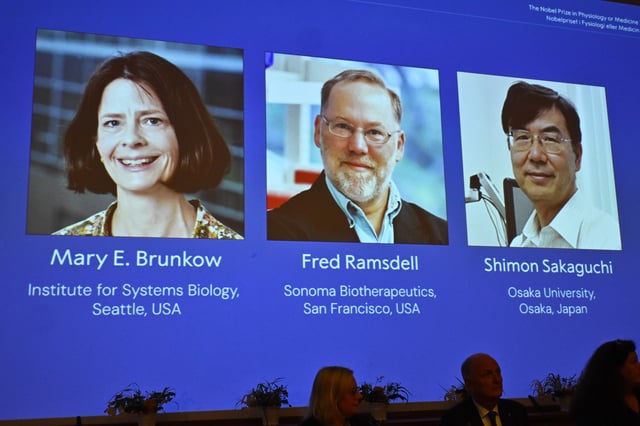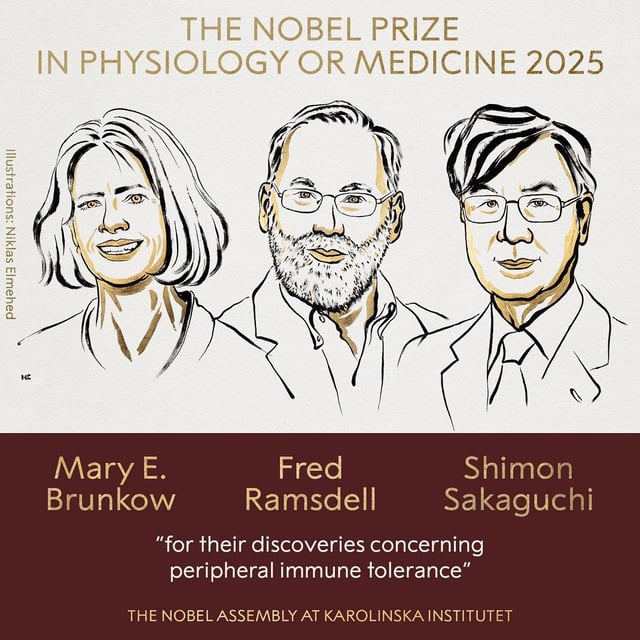Overview
- The Nobel Assembly at Karolinska Institutet honored Mary E. Brunkow, Fred Ramsdell and Shimon Sakaguchi for their discoveries concerning peripheral immune tolerance.
- Sakaguchi identified regulatory T cells in 1995, Brunkow and Ramsdell uncovered a Foxp3 gene mutation linked to autoimmunity in 2001, and later studies showed Foxp3 governs T‑reg development.
- Their findings explained a key peripheral mechanism that prevents immune cells from attacking the body’s own tissues, expanding understanding beyond thymus‑based central tolerance.
- The committee said the work launched the field of peripheral tolerance and is informing treatments for autoimmune diseases, cancer and transplantation, with several approaches in clinical trials.
- The winners will share 11 million Swedish kronor, with prizes to be presented in Stockholm on December 10, as committee chair Olle Kämpe called the discoveries decisive for understanding immune function.



